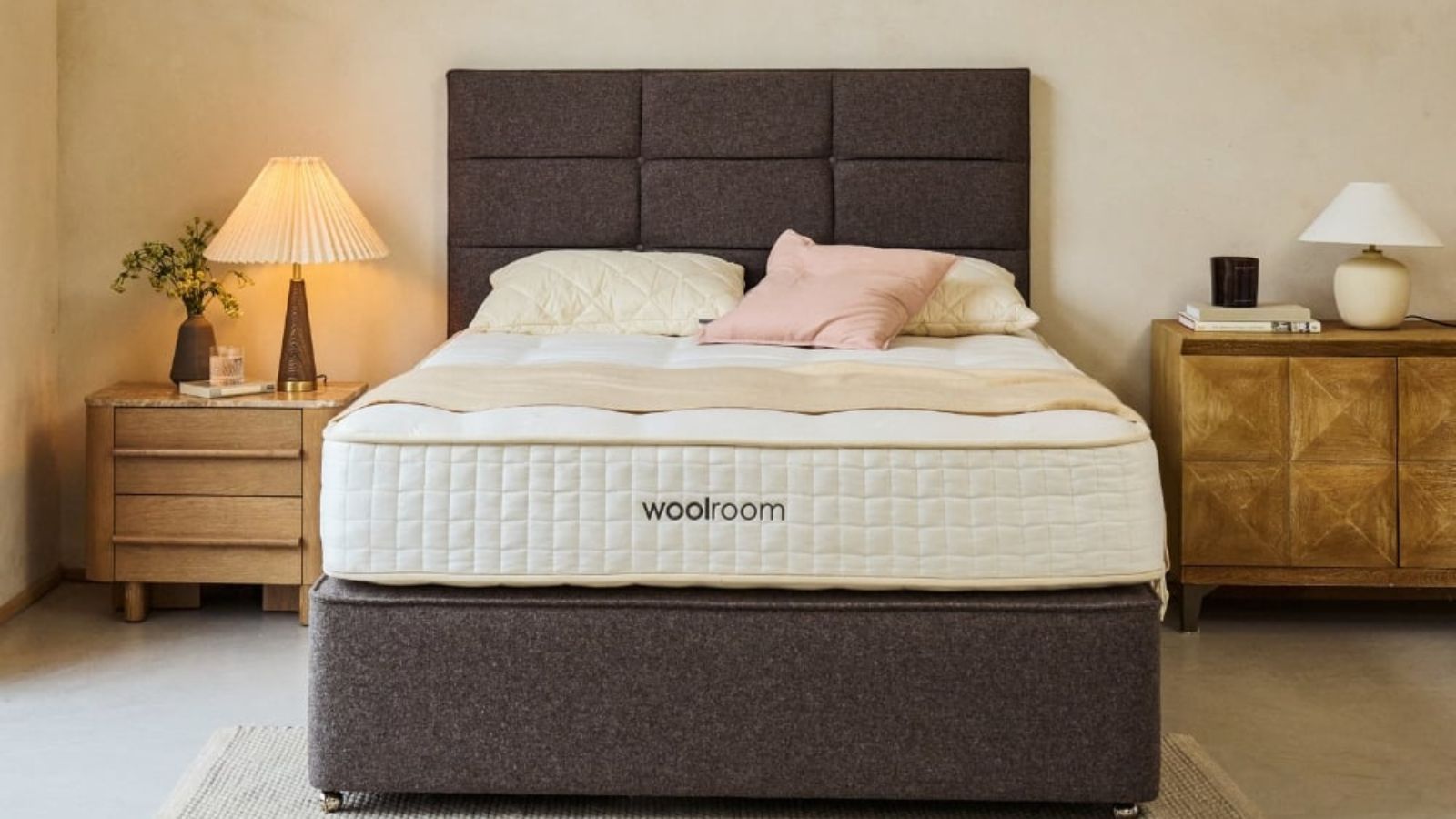
Organic mattress brands make big promises. We're told that natural fibers are more breathable, durable, and sustainable than synthetic strands. And, as the weather warms up, more and more people are considering organic mattresses for natural thermoregulation.
As the resident Sleep Editor at Homes & Gardens, I believe that the best mattress should be good for your body and for the environment. But some shoppers harbor doubts as to the actual eco-friendliness of so-called organic mattresses. They're wary of 'greenwashing', a practice which the National Resources Defence Council defines as 'false or misleading statements about the environmental benefits of a product or practice.' If you get greenwashed, and you're mis-sold a mattress, then you'll pay a lot of money for what is actually an inorganic product.
That's why I've assembled an expert panel to explain what 'organic' actually means when it comes to mattresses. I've spent hours sorting through our buying guides to bring you the best organic mattresses, independently accredited by environmental organizations.
Are organic mattresses a hoax?
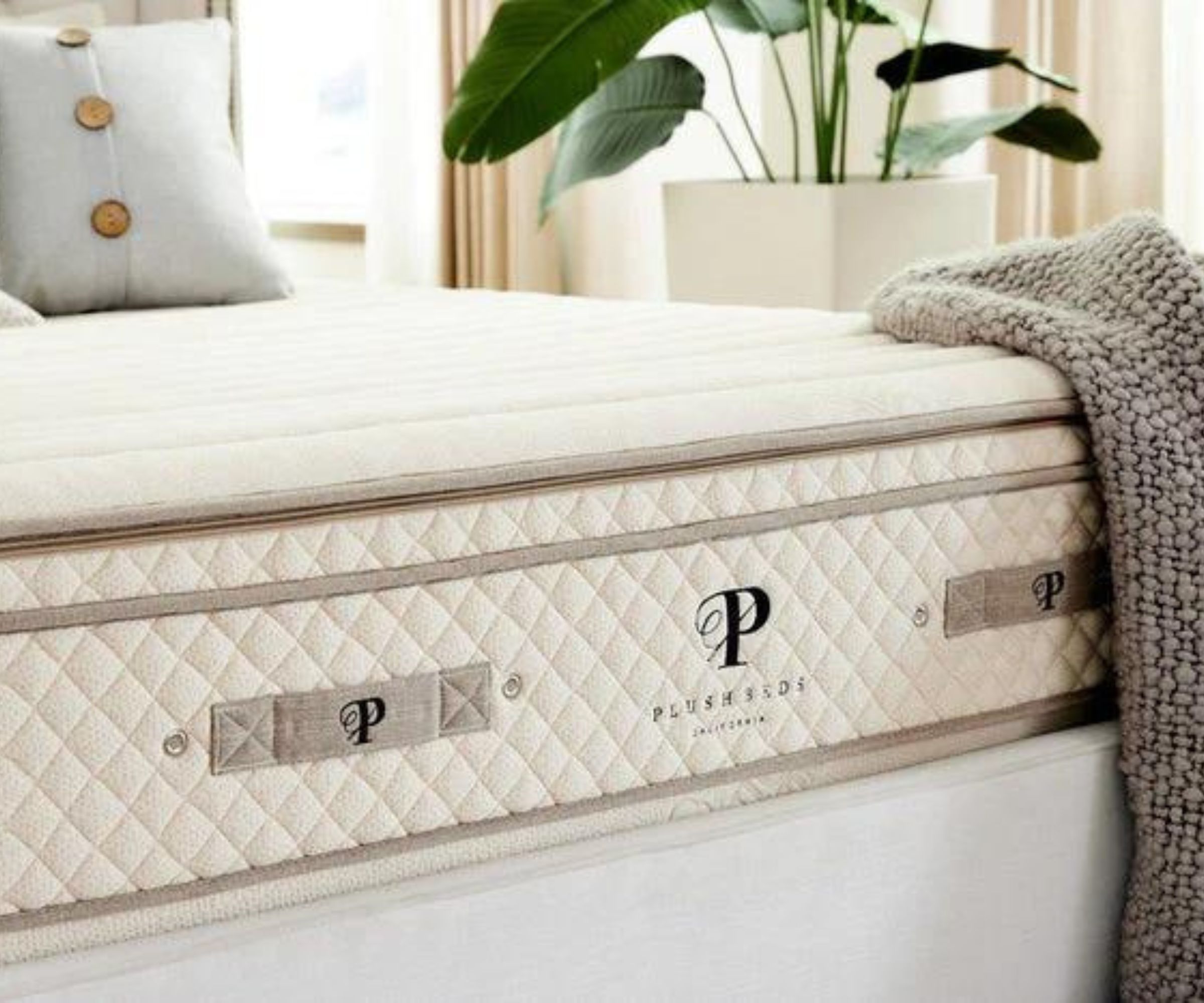
Before we begin, it always helps to define our terms. I asked Mike Handelsman, CEO and Owner of the textiles company FoamOrder what it means for a mattress to be organic. Mike explains that 'in the mattress industry, the word "organic" refers to materials such as cotton and latex that are grown and processed without synthetic chemicals or pesticides.'
'An organic mattress is defined by its materials and production process,' Mike continues. 'You want to see certified organic cotton for covers, and natural latex that's harvested without synthetic chemicals. In an organic mattress, every component is chosen for its purity and sustainability, ensuring that no harmful chemicals or additives are used.'
'The term "organic" becomes reliable when it's backed up by certifications,' says Mike, citing USDA Organic and GOTS as examples. 'If you don't see these terms on the product listing, ask. If the answer contains nothing of substance, then it's fake – the so-called "organic" mattress is a hoax.'
To save you time and money, I've combed through our back catalog of reviews to bring you the best organic mattress for every budget. These mattresses are accredited by independent environmental bodies, including OEKO-TEX, Fair Trade, and EWG, and tested by a member of my expert team.
Some of our favorite (and verified) organic mattresses
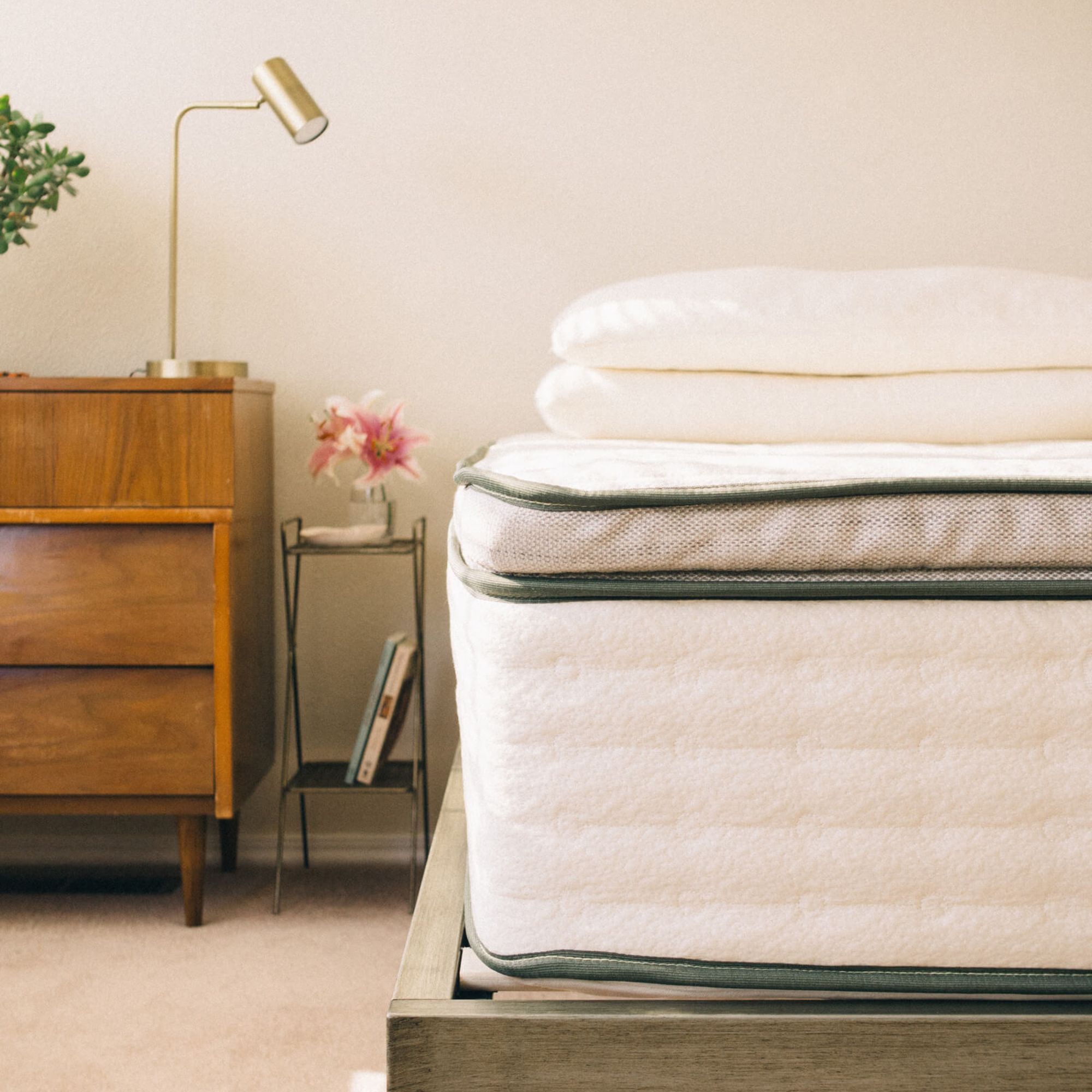
'I found that the Avocado Green Mattress compresses around the general shape of the body, rather than sharply molding to my curves and contours,' says expert tester Antonia Santoro. 'The wool quilting and Talalay latex comfort layer offer cushioning around the areas where I make the most contact with the mattress, while the springs are arranged in ergonomic zones.'
Read the full review: Avocado Green Mattress
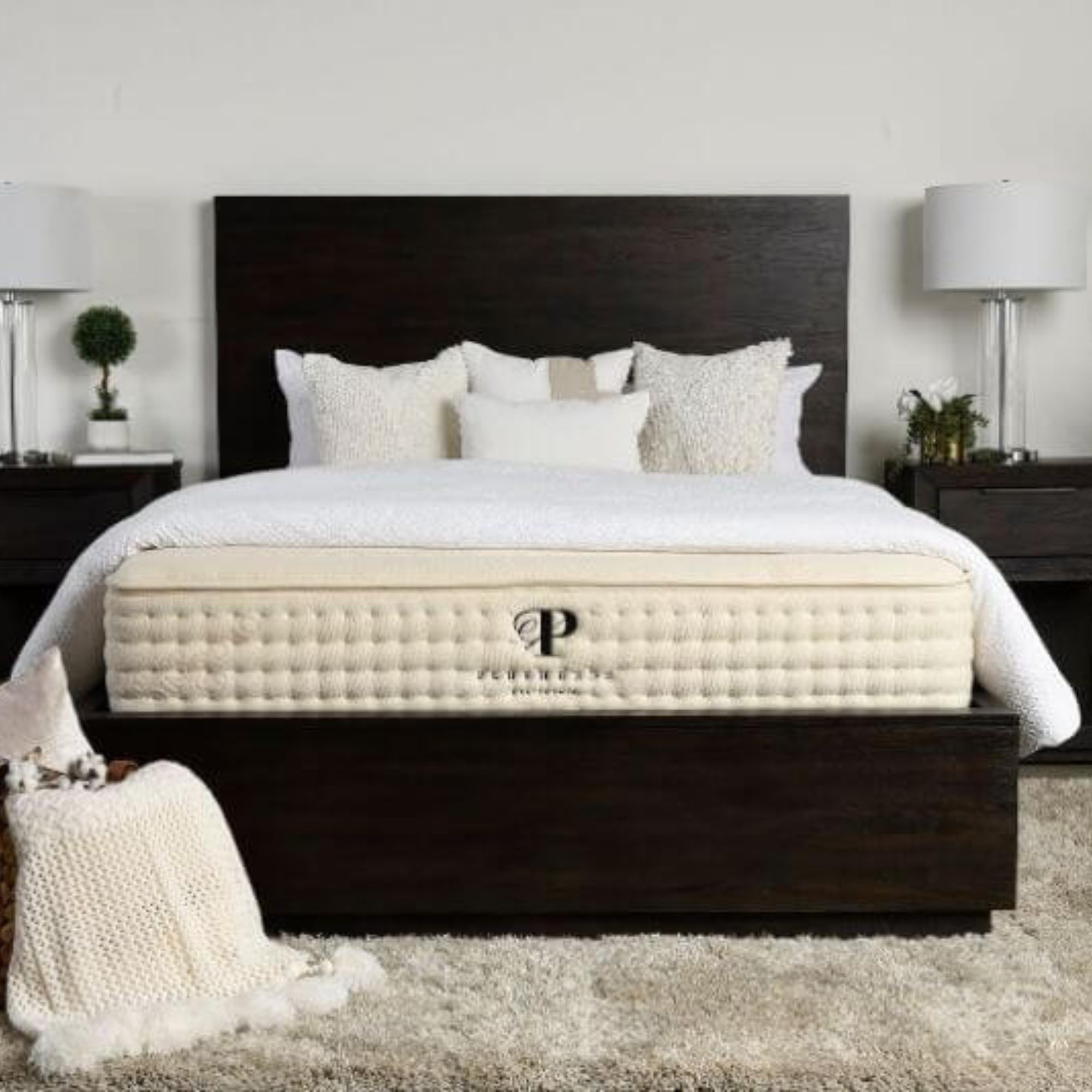
'If you want more say in how your mattress is made, consider the PlushBeds Botanical Bliss,' says expert tester Alex Temblador. 'At PlushBeds, you can customize every aspect of your mattress, from height and size to firmness and feel. Filled with natural latex, this mattress is supportive, made to ease aches and pains. Sure, it's expensive, but that's the price you pay for the best organic mattress.'
Read the full review: PlushBeds Botanical Bliss Mattress
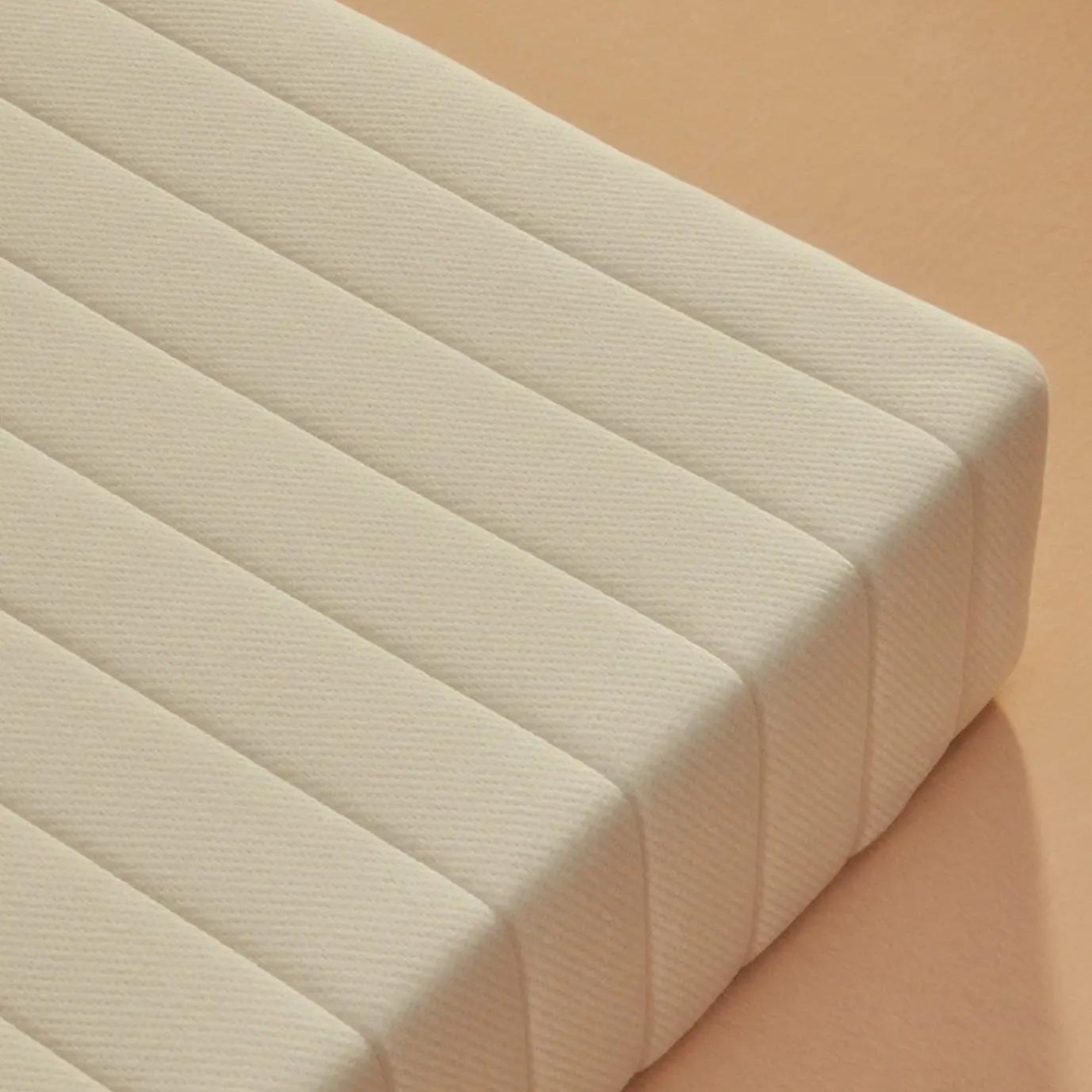
Some of the best organic mattresses are prohibitively expensive, but the Earthfoam Organic Mattress is attainable for buyers on a budget. Filled with natural latex for support and topped with organic wool and cotton for comfort, the Earthfoam Organic Mattress is breathable and durable, though the motion isolation leaves a little to be desired.
Read the full review: Earthfoam Organic Mattress
I asked Simon Weigh, mattress tester and expert at Bed Factory Direct, to clear up the confusion. Simon says that 'some brands will use the term "organic" as a buzzword for additional sales, rather than using it for the right reasons. "Organic" isn't a protected term in the mattress industry like it is in the food industry, which allows many brands and companies to mislabel their mattresses.'
'If there are any synthetic materials used on the mattress at all, then technically it isn't 100% organic and should not be labeled as such,' Simon continues. 'More needs to be done in the industry to stop false labeling.'
Simon's advice for consumers: 'understanding what actually constitutes an organic mattress will help you make more informed choices on your purchase journey.'
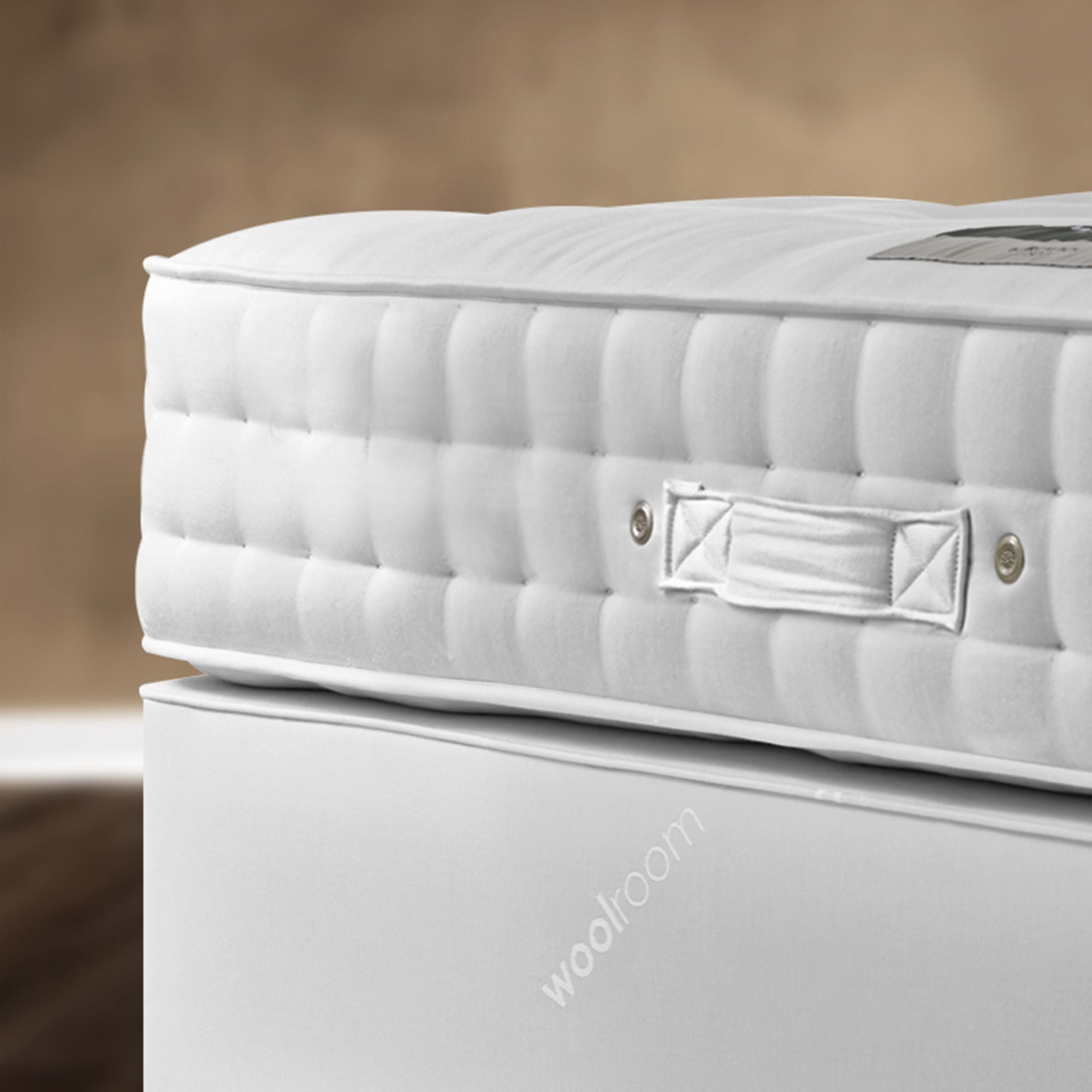
Wool is naturally thermoregulating and moisture-wicking. According to the Woolroom Clean Sleep Report 2024, wool can hold up to 33% of its weight in water overnight, keeping your bed and your body cool and dry. It's a great choice for anybody who struggles with night sweats.
Read the full review: Woolroom Hebridean 3000 Mattress
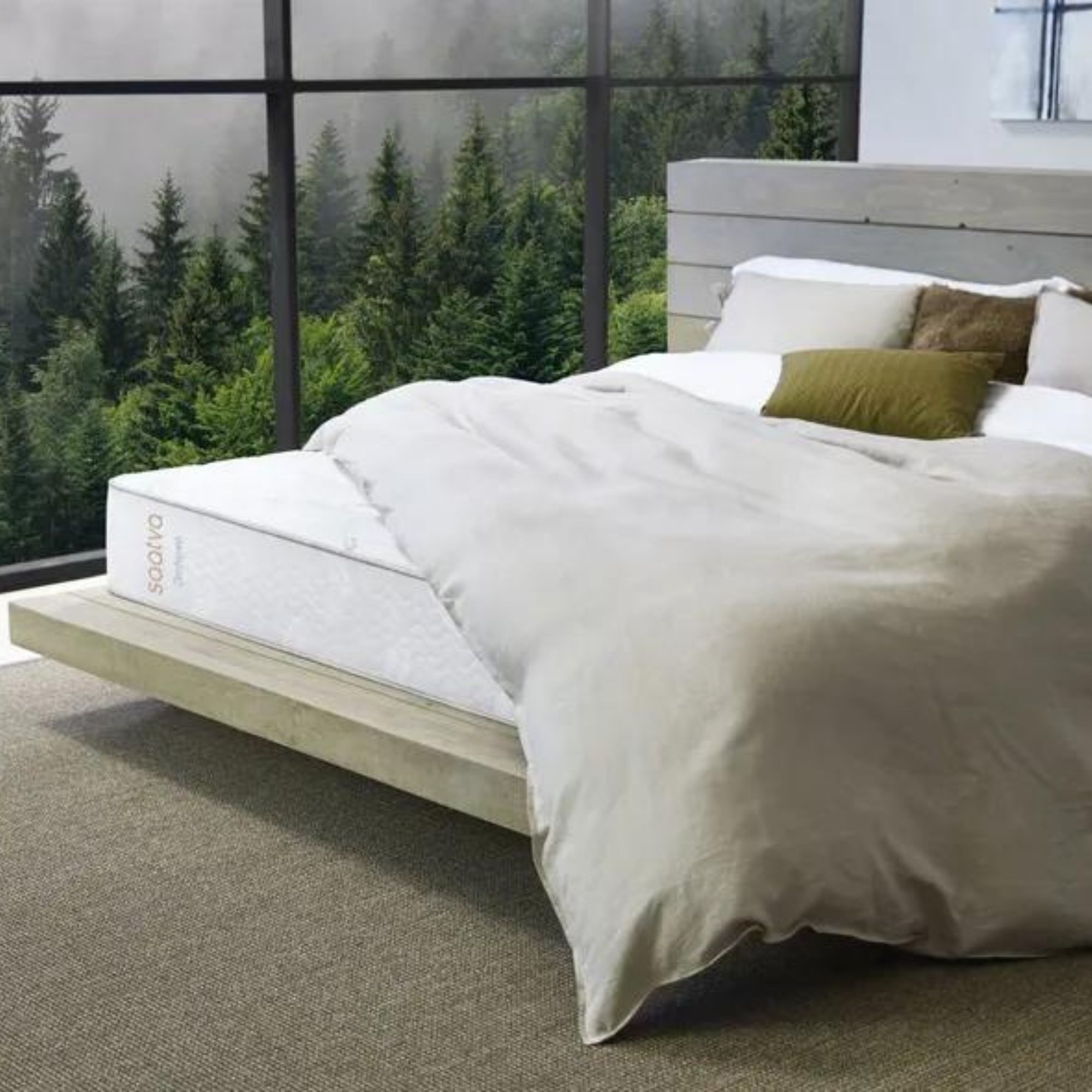
'The Saatva Zenhaven Natural Latex Mattress is filled with organic latex and topped with organic wool and cotton,' explains Jill Waldbeiser. 'There are no foams, no fire retardants, and no shards of fiberglass. The mattress is made to order in the USA at factories within 100 miles of most shipping addresses to reduce carbon emissions.'
Read the full review: Saatva Zenhaven Natural Latex Mattress
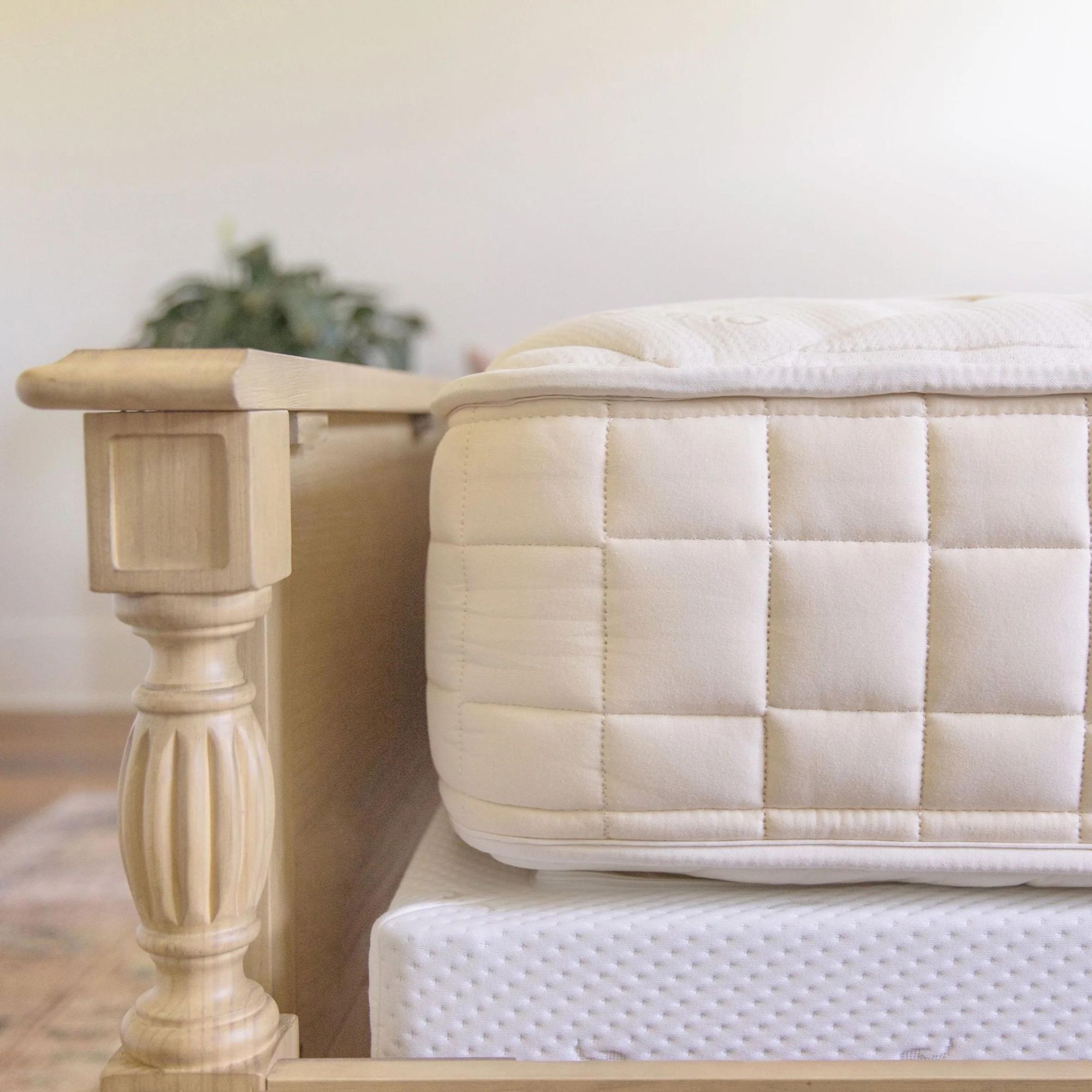
'The Naturepedic Chorus Mattress is lined with supportive spring coils and topped with wool and cotton batting. But this isn't your grandmother's innerspring,' says expert tester Courtney Irwin. 'Each coil is individually pocketed to stop any squeaking and minimize motion transfer. Plus, it's filled with organic materials that are better for your body and for the environment.'
Read the full review: Naturepedic Chorus Mattress
How to make sure you're buying organic
Given that 'organic' is not a protected term in the mattress industry, it's all too easy for a brand to position themselves as 'eco-friendly, 'natural', or 'green' without any specific organic certifications.
To help you cut through the noise, I asked sleep scientist Susan Miller (Sleep Technician at Sleep Mattress HQ) to share her top tips and tricks when shopping for an organic mattress.
- Check certifications: Susan emphasizes that 'genuine organic mattresses will carry certifications from recognized organizations.' Rather than relying on badges and graphics beneath a product listing, you can reverse-search for mattress brands via the organization's website.
- Read the label: 'The materials used in organic mattresses should be clearly disclosed on the website, and definitely on the label,' says Susan. 'Legitimate manufacturers will have transparent labeling. Look for specific details about organic fibers, such as organic cotton, wool, or latex, and ensure that these materials are backed by appropriate certifications.'
- Research the manufacturer: Susan encourages shoppers to 'find out how the brand manufactures and manages its supply chain. In every stage of the production cycle, genuine organic mattress manufacturers prioritize sustainability and eco-friendliness. They might partner with organic farms, use eco-conscious packaging, or employ ethical labor practices.'
- Do a smell test: This one works best in person. 'The materials used in organic mattresses typically produce a natural scent,' Susan explains. 'A mattress that emits strong chemical odors or smells artificial may contain synthetic or even toxic materials.'
- Check the price tag: Susan says that 'organic mattresses are often more expensive, due to the higher cost of organic materials and certification processes.' As a mattress tester and a professional price tracker, I wouldn't spend any less than $1,000 on an organic mattress. Much cheaper, and I start to wonder where they're cutting corners.
Meet the experts
FAQs
Are organic mattresses worth it?
If you're keen to minimize your impact on the planet, an organic mattress is the only option. Natural materials, including cotton, wool, and latex, are far more durable, breathable and sustainable than synthetic substances, such as polyfoams.
As a general rule, organic mattresses are more expensive, but I think it's worth the enhanced comfort and peace of mind.
I'd recommend an organic mattress for hot sleepers as well as eco-conscious shoppers and anybody who wants to spend once and spend well on a mattress.
Where can I buy an organic mattress?
Not many of the best places to buy a mattress sell organic mattresses, so you'll have to do your research before you buy. For custom comfort, try PlushBeds, where you get to choose the height, thickness, and firmness of your organic latex mattress.
If you're buying on a budget, I suggest Earthfoam: theirs is the only organic mattress I've seen listed for less than $1,200 for a Queen. Avocado makes a Vegan mattress for anyone who wants to avoid animal products, including wool.
Our verdict
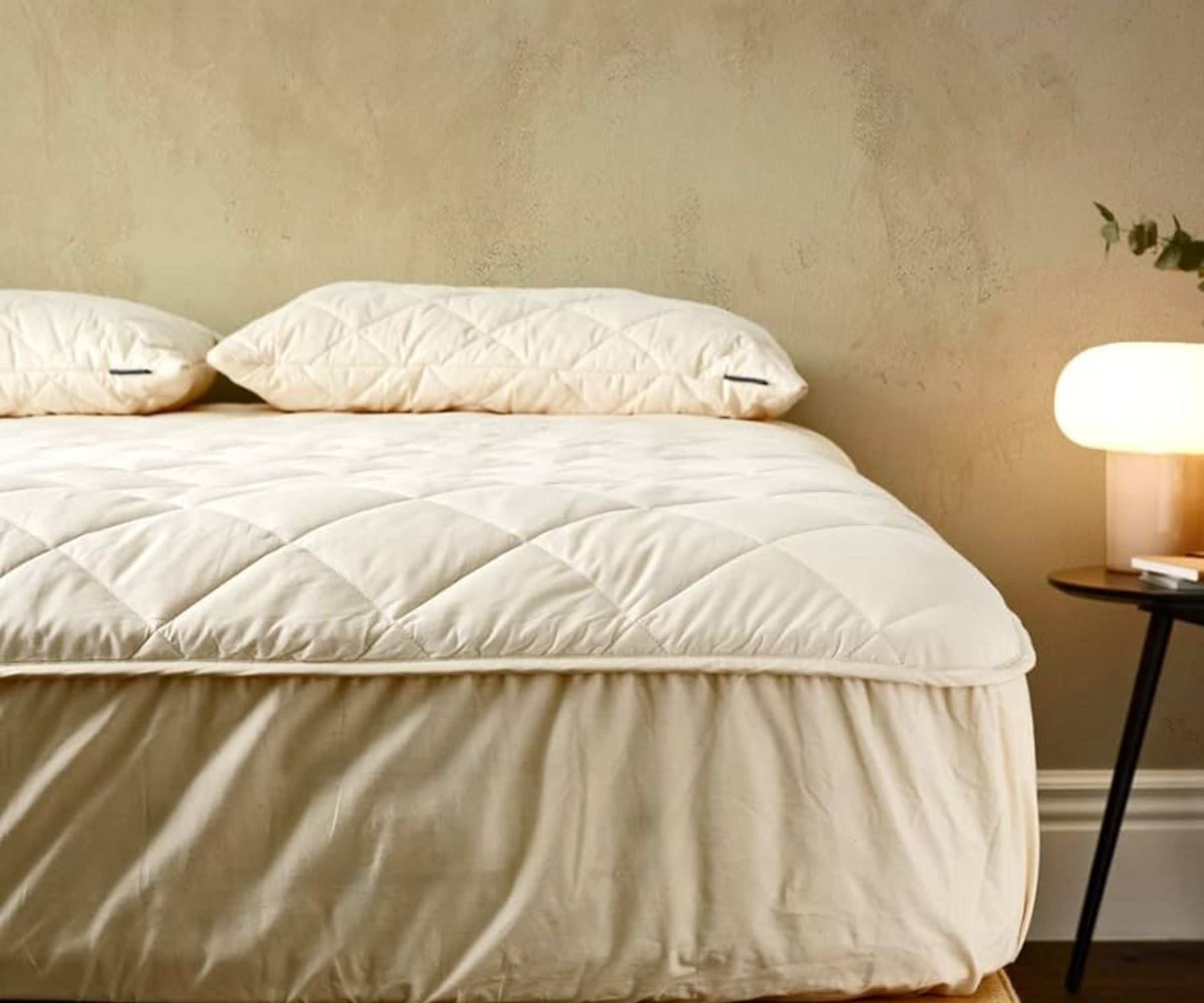
In summary, the idea of an organic mattress is not a hoax: it is possible to buy a mattress filled with materials that are grown and processed naturally, without synthetic chemicals or pesticides. However, these mattresses can be hard to find, since "organic" is not a protected term in the mattress industry: any brand can use it.
If you're keen to shop sustainably, try to look past the marketing jargon and inspect the eco-credentials of the mattress. You're looking for GOLS latex, GOTS wool or cotton, and badges from reputable organizations such as GREENGUARD and Fair Trade.
Before you buy an organic mattress, it's worth asking the question: 'is it good to sleep on latex?' I've assembled an expert panel of mattress manufacturers to give us the lowdown on latex: how it's made, how it feels, and what it costs.







